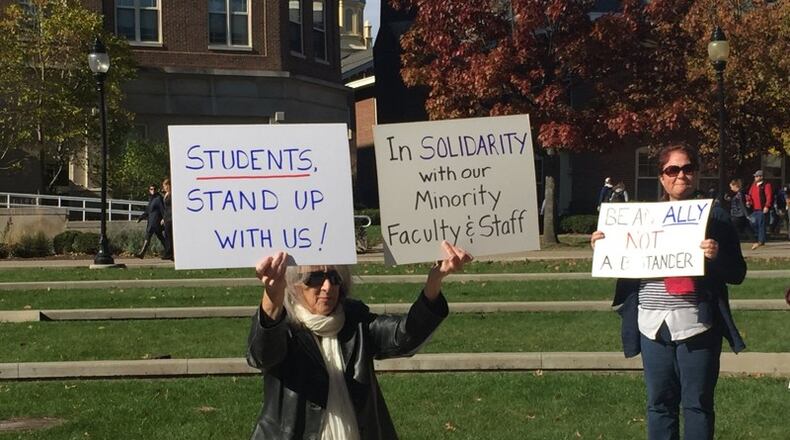Just three weeks out from inauguration day, here are five stories about how colleges reacted to the election on campus:
1. Students considered using their vote to protest their choices for president
As the election approached, some experts thought young voters would select a third party candidate, such as Libertarian Gary Johnson and Green Party nominee Jill Stein. Experts warned that voting for a third party candidate could have an unintended consequence though, such as helping to elect the voter’s last choice for president.
2. Some college students needed help coping with the result of the presidential election
Days after Trump won the presidency, the University of Dayton, Wright State and Miami University all reported students were having trouble dealing with the election results. Colleges hosted forums and meetings in which students were encouraged to share their feelings and “heal” from divisive campaign rhetoric.
3. Faculty members at UD stood in solidarity with their minority colleagues
UD faculty and staff held a demonstration out on Humanities Plaza on campus as a show of support for people who felt vulnerable after the election. Faculty also hosted a “teach-in” to deal with the fallout from the election.
4. International students started to wonder what Trump’s victory meant for them
Soon after the election, administrators at Wright State said they heard from foreign students who were concerned about the outcome of the election. Administrators also started to worry about the effects Trump could have on international student populations, as they make up large chunks of enrollment at area colleges.
5. Ohio college presidents came out in support of undocumented students
Despite Trump’s tough talk on immigration, the presidents of UD and Xavier, among others, signed a letter expressing their support for the continuation of a U.S. policy that temporarily shields from deportation illegal immigrants who were brought to the United States as children. It’s estimated that Deferred Action for Childhood Arrivals, or DACA, protects more than 700,000 people in the U.S.
About the Author
